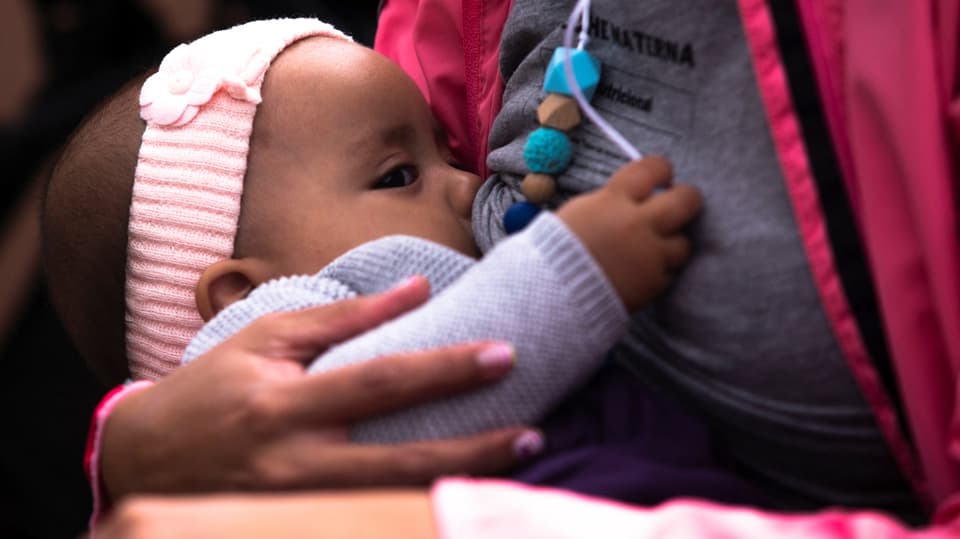What happened? Aurora Ramazzotti, model and presenter, experienced a shitstorm. The reason: As she announced in an Instagram story, her two-and-a-half-month-old son is now getting the bottle, the artist has stopped breastfeeding.
How did the excitement come about? According to Anne-Laure Garcia, a sociologist at the Technical University of Dresden, breastfeeding has had a social meaning for centuries. And people and politicians still have an opinion on the subject today.
How was it before? In the past, babies were also given animal milk to drink. Because it was very unhygienic, many children died from it. And when the birth rate began to decline in the 18th century, governments in Western Europe scrambled to save children’s lives. To this end, according to Garcia, they focused on the figure of the mother and made her responsible for the welfare of the children. “That was the moment when it was said that the woman who carried the child should breastfeed the child herself – and then breastfeed as long as possible to save his life.”
How does politics see breastfeeding today? The motto that breastfeeding is best for your baby can still be found in every advertisement for bottled milk. A duty, as the sociologist says. The WHO decreed this in the 1970s because so many babies died in Africa and Asia who had been poorly or inadequately fed with contaminated water or milk that was too diluted.
What comes up short? “Children who were not born too early and are in good health do not receive as many advantages as the population imagines.” Because of the message from the WHO, other findings would go unnoticed and corresponding research would be less well funded. For example, when examining the quality of breast milk. According to Garcia, mothers who live in a city also have a lot of pollutants in their bodies over the years. And if they’re breastfeeding, these could also pass into breast milk.
Where does suffering arise? Only when women have symptoms, such as inflammation of the nipples, or babies have trouble digesting, is it discovered what is physically associated with breastfeeding. According to the sociologist, the question to be asked is whether the health of the child is more important than how the mother is doing with breastfeeding.
The complaints associated with breastfeeding are not discussed at all.
How is the situation in different countries? In France, breastfeeding is treated differently than in Germany. In Germany, the midwife would have said: “If you are breastfeeding, you have to consider this and that.” In France, on the other hand, the midwife would have asked: “Are you planning to breastfeed?” So the idea of what a good mother is varies – and breastfeeding is a symbol of it.
Legend:
The WHO recommends mothers worldwide to exclusively breastfeed their infants for the first six months of life (symbol image).
Reuters/QUETZALLI NICTE-HA
How is it in Switzerland? In Switzerland, too, there is a consensus that breastfeeding is best because it is natural. This is reflected in employment law: At work, you are given breaks for breastfeeding. But there are no breaks for bottle feeding.
The mother’s milk is naturalized as if it were a magical juice.
What does breastfeeding policy do with gender roles? According to Garcia, Swiss politics also cements gender roles. There is a study, for example, that breastfeeding leads to a retroditonalization of the division of labor. “Even couples who perceive themselves as equal-oriented tend to naturalize the competences and attributions between women and men through breastfeeding.”
